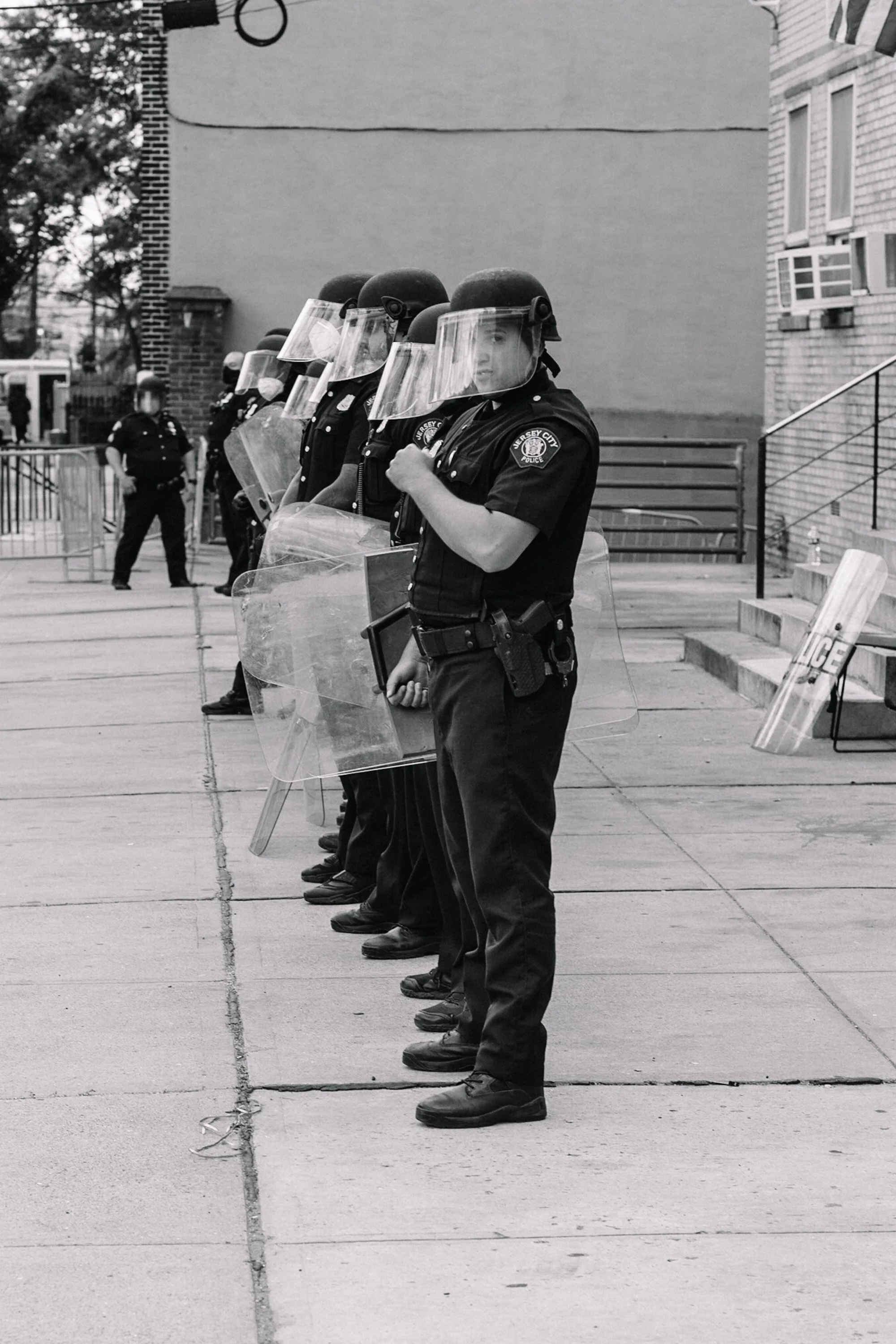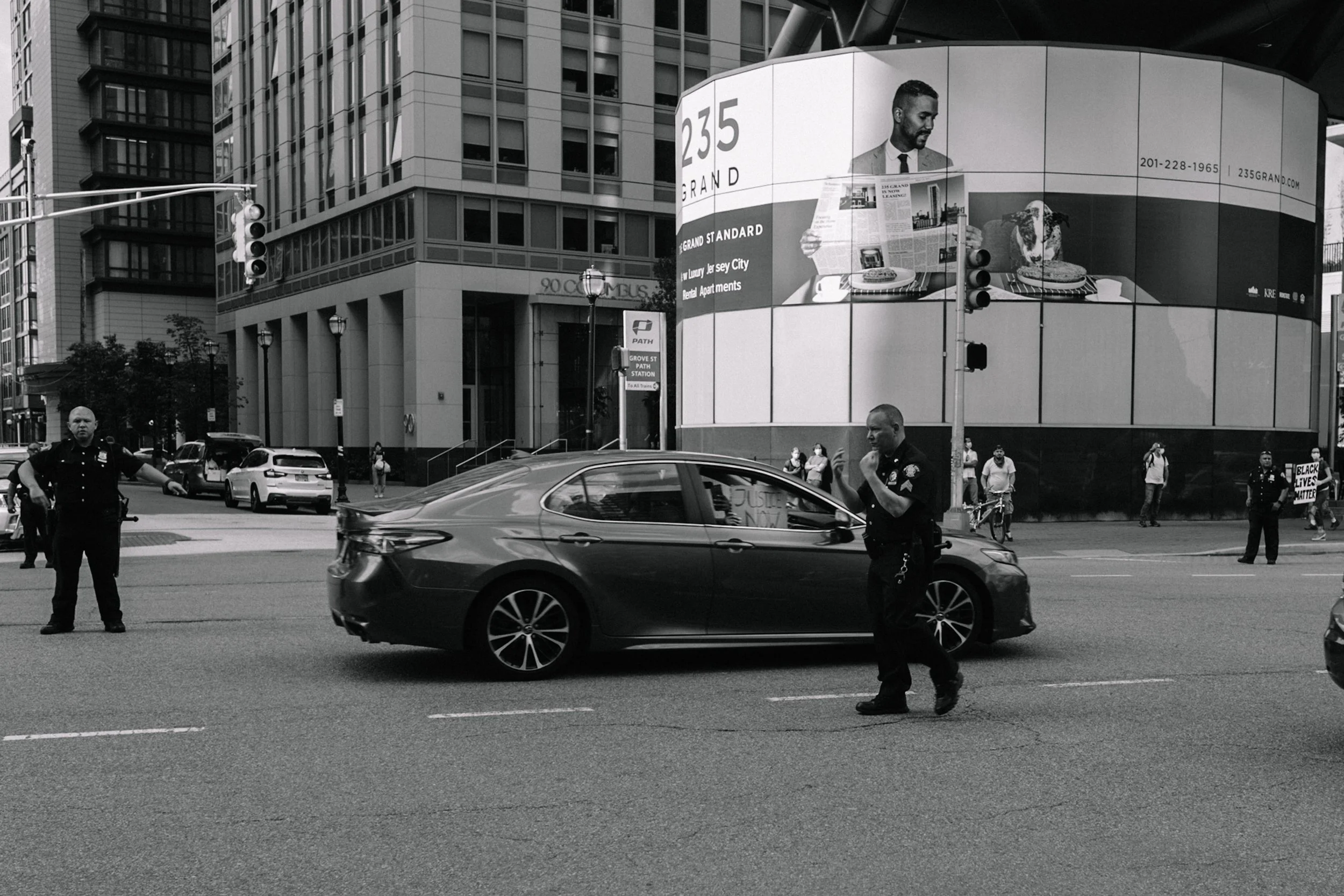Weapon of Choice: Documenting ICE, the National Guard, and State Violence
Greenville Precinct - Jersey City, NJ - June 2020
The Camera as Witness.
Cameras are loud. Not just the click of a shutter — louder in the way they testify. They create records that outlast propaganda, fear, and the spin of “official” reports.
When federal officers, ICE agents, or the National Guard step into public streets, that noise matters. Our cameras can be louder than people realize.
Interference is Not An Excuse
One of the most common tactics is claiming your camera is “interfering.” You’ll also be asked “to step back” or “to stop recording”.
Don’t stop documenting. Recording from a public space is a protected act. As long as you’re not physically blocking operations, photographing or filming is not interference — even if they insist otherwise. If confronted, stay calm and assert your rights:
“I am documenting from a public space. I am not interfering.”
What They Can & Can’t Do
They can tell you to move if you’re blocking a perimeter.
They can set restrictions around federal property.
They can’t delete your photos.
They can’t take your camera without a warrant.
They can’t stop you from photographing what’s in plain sight.
Intimidation is the tactic. Don’t mistake it for authority.
Keep your distance. Document from the side, not in the middle. Stay visible. Identify yourself as a photographer if you can. Back up your files as soon as possible. Sync to the cloud or send to someone you trust. If gear is taken or destroyed, the record survives. Know your exits.
If You’re in Trouble: Who to Contact
If you’re detained or you witness harassment, your work becomes urgent. Send your images to groups that can move quickly:
ACLU – Use their national intake form for civil liberties violations, including federal misconduct.
National Lawyers Guild (NLG) – Request legal observing or emergency legal support, especially if you're dealing with federal-level enforcement.
RCFP Legal Hotline – Strategically equipped to advise journalists facing arrests, censorship, or equipment seizure. Call 1-800-336-4243 or email hotline@rcfp.org.
Freedom of the Press Foundation – Submit press freedom violations via the U.S. Press Freedom Tracker to ensure broader visibility and protection.

